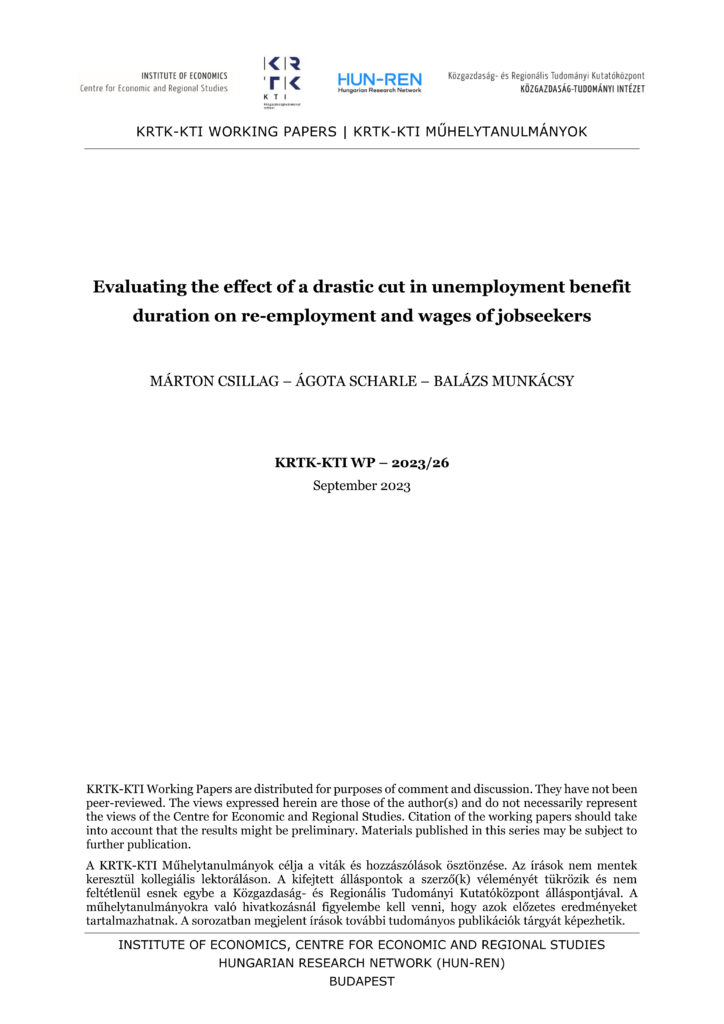We evaluate the effect of a drastic cut in potential benefit duration, reducing the maximum length of UI benefits from 9 to 3 months in Hungary at the end of 2011. We rely on rich longitudinal matched administrative data, which allows us to obtain information on a large sample of UI benefit claimants, and we use matching methods to evaluate the effect of the benefit cut. While UI claimants found jobs more rapidly as a result of the reform, this is a relatively small change, and we find only negligible negative effects of reemployment wages overall. The notion that changes are due to the reform is reinforced by the result that the effect on employment is largest for the group where the ‘bite’ of the reform was the largest. Our heterogeneity analysis reveals that the drastic cut seems to have reduced moral hazard for the most employable (those with tertiary education) and forced them to be ‘less picky’. This means that they took up lower wage jobs, but this effect was only temporary. Overall, the reform led to significantly lower income for over 60 percent of jobseekers, since the increase in labour income did not compensate for the large reduction in UI benefits paid; while only benefiting less than 10 percent of jobseekers, over a two-year horizon.
Publikációk / Evaluating the effect of a drastic cut in unemployment benefit duration on re-employment and wages of jobseekers
Evaluating the effect of a drastic cut in unemployment benefit duration on re-employment and wages of jobseekers
- 2023.09.19
- | 09:29

2025
Jul
11
M
T
W
T
F
S
S
30
1
2
3
4
5
6
7
8
9
10
11
12
13
14
15
16
17
18
19
20
21
22
23
24
25
26
27
28
29
30
31
1
2
3
Next month >
a
2025
Jul
11
M
T
W
T
F
S
S
30
1
2
3
4
5
6
7
8
9
10
11
12
13
14
15
16
17
18
19
20
21
22
23
24
25
26
27
28
29
30
31
1
2
3
Next month >

